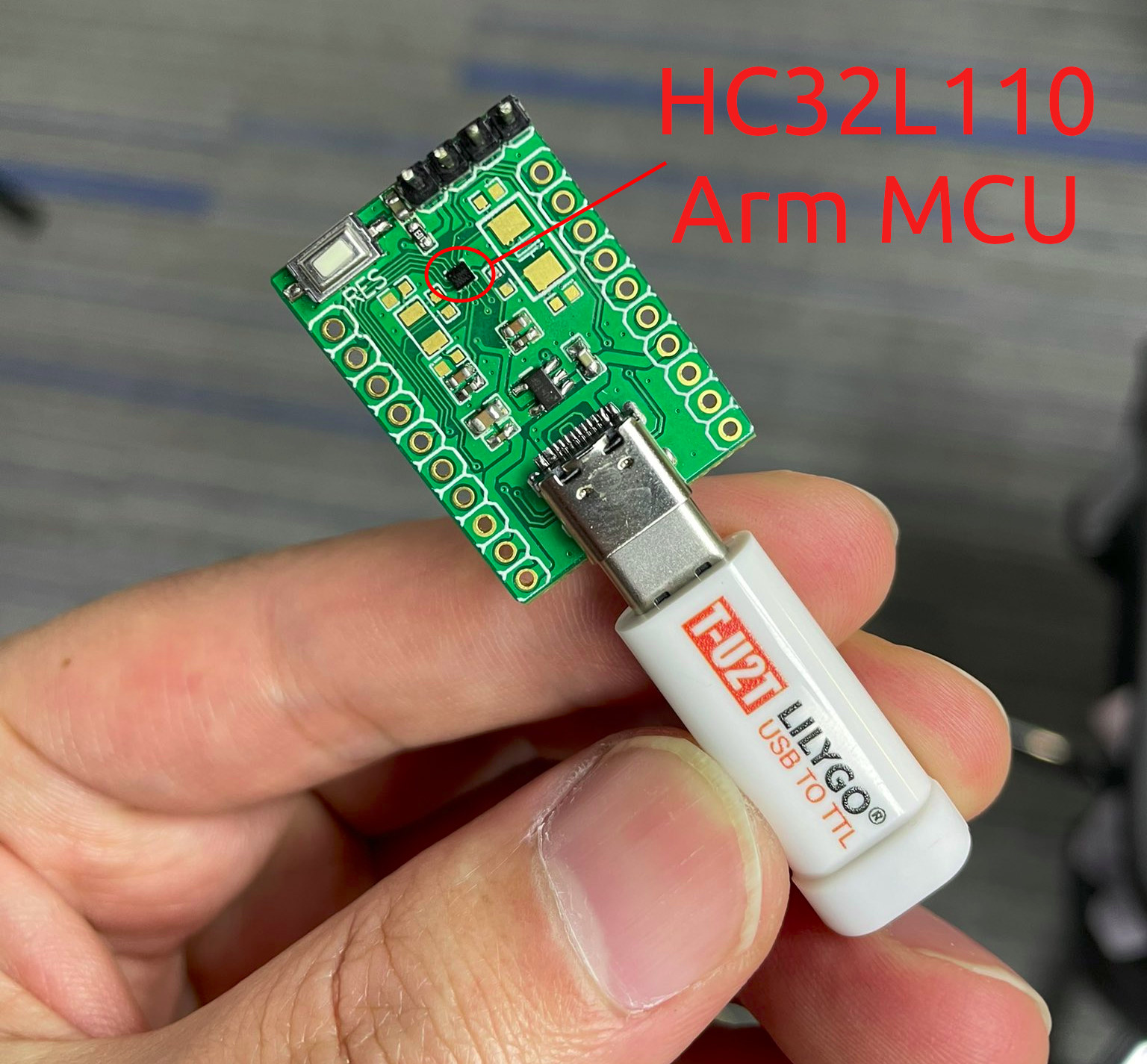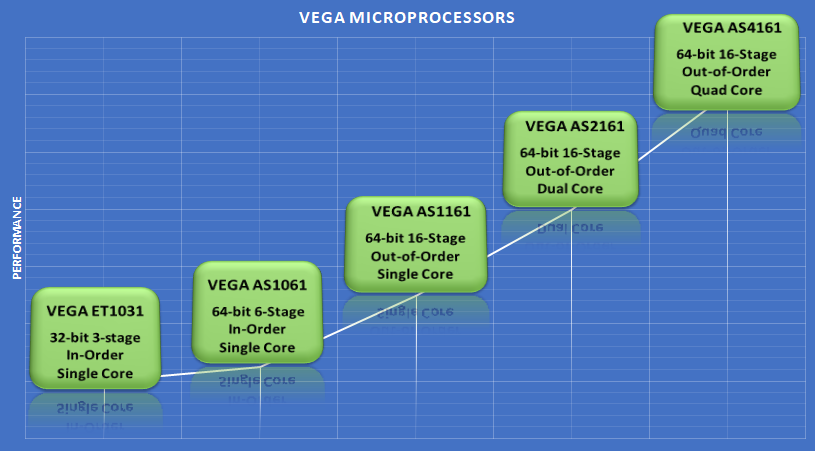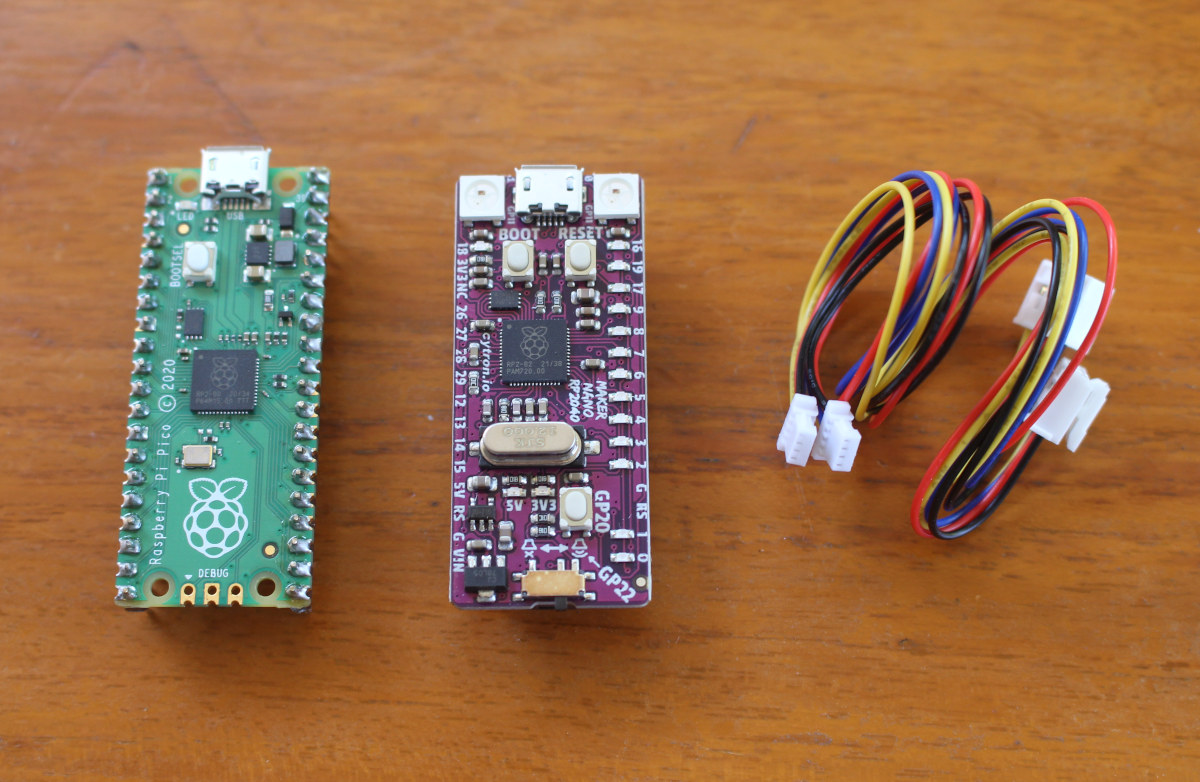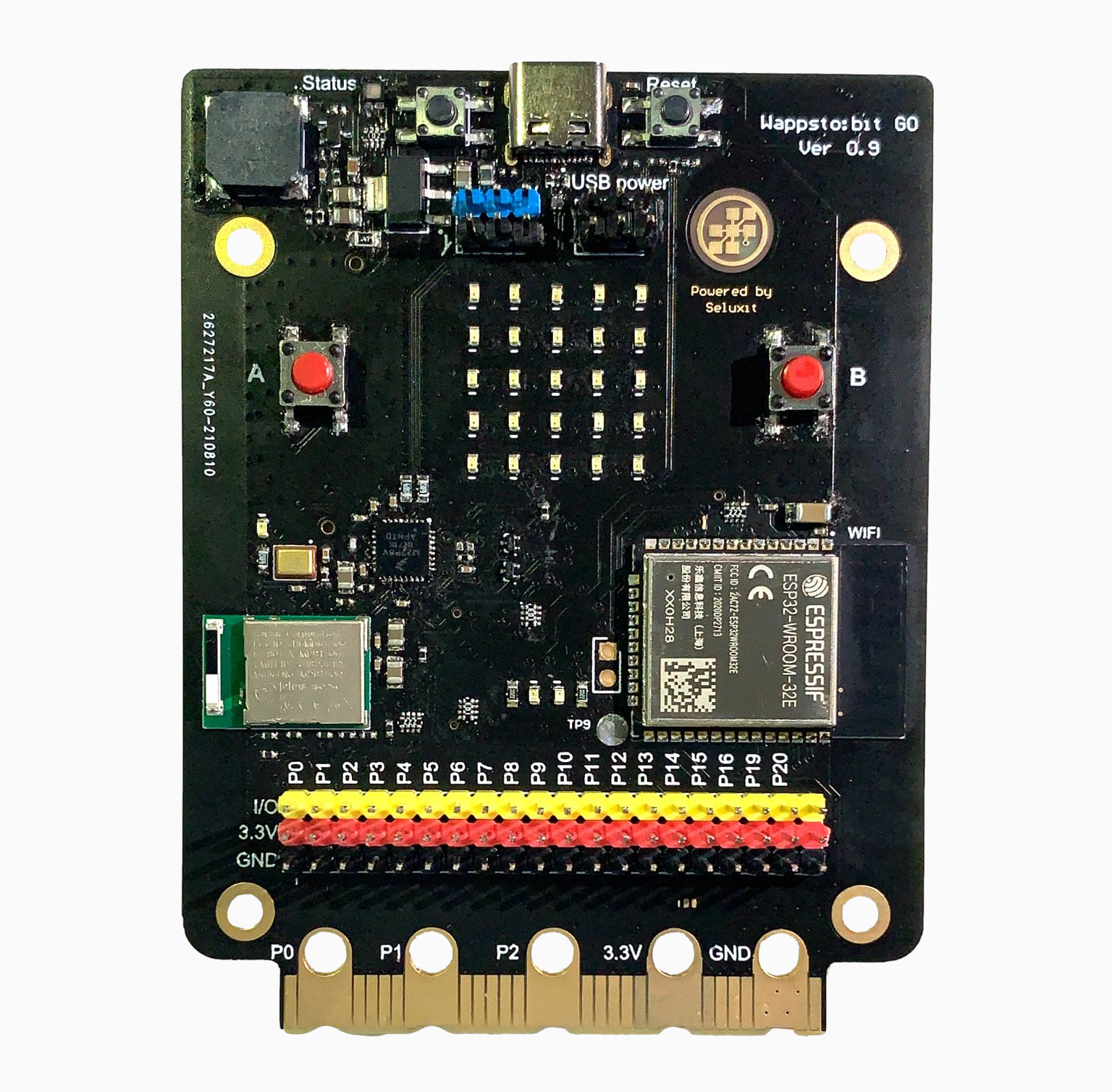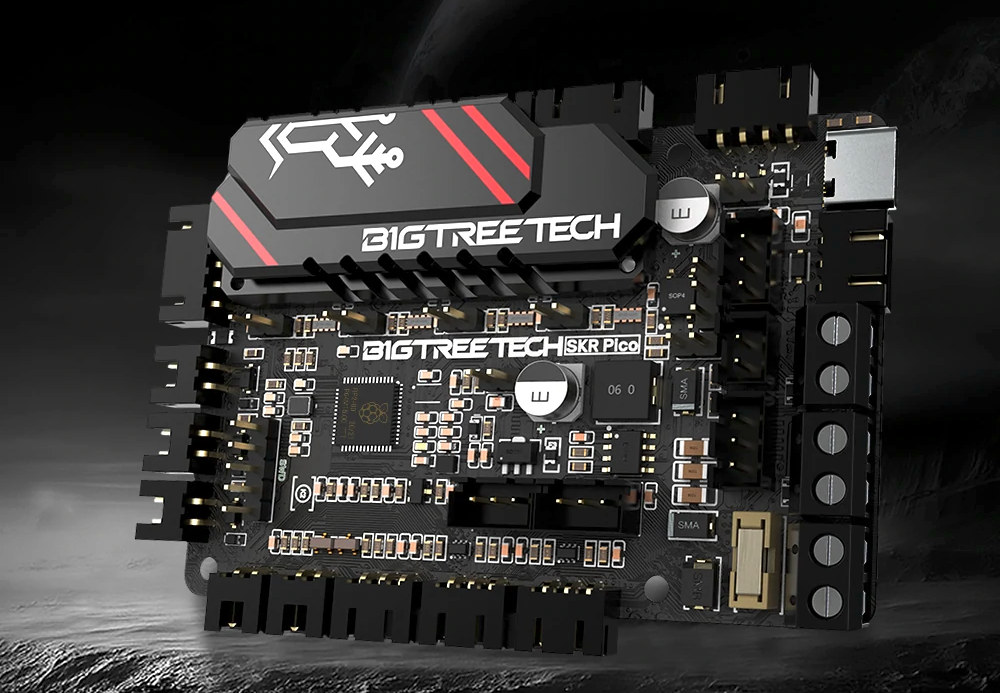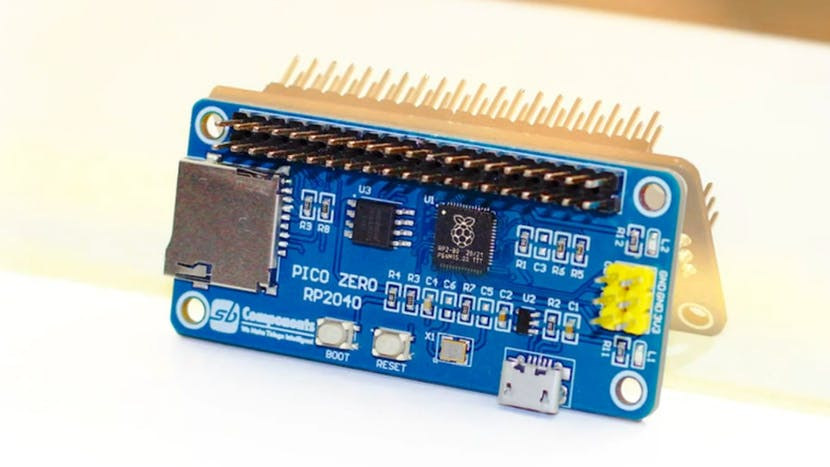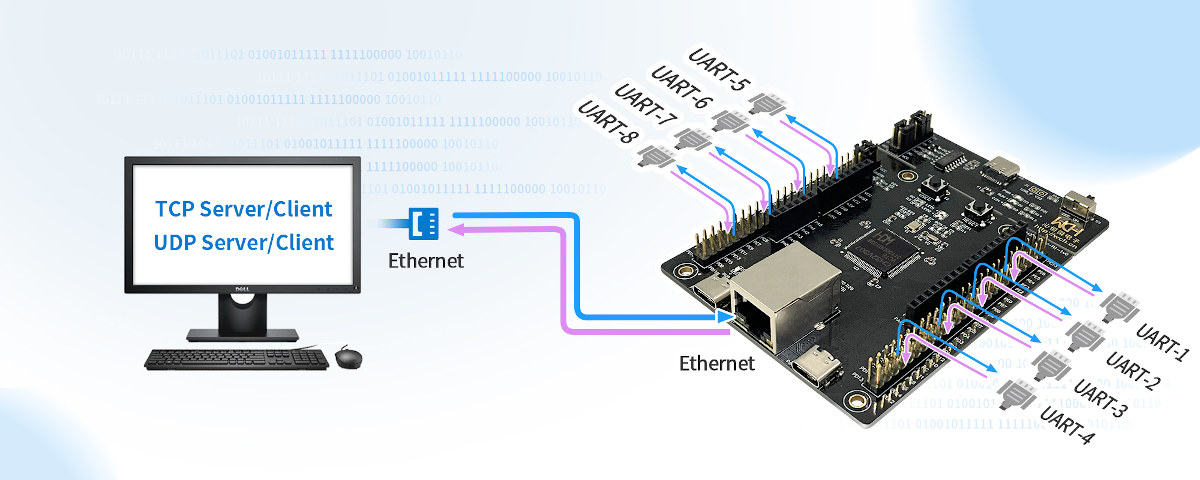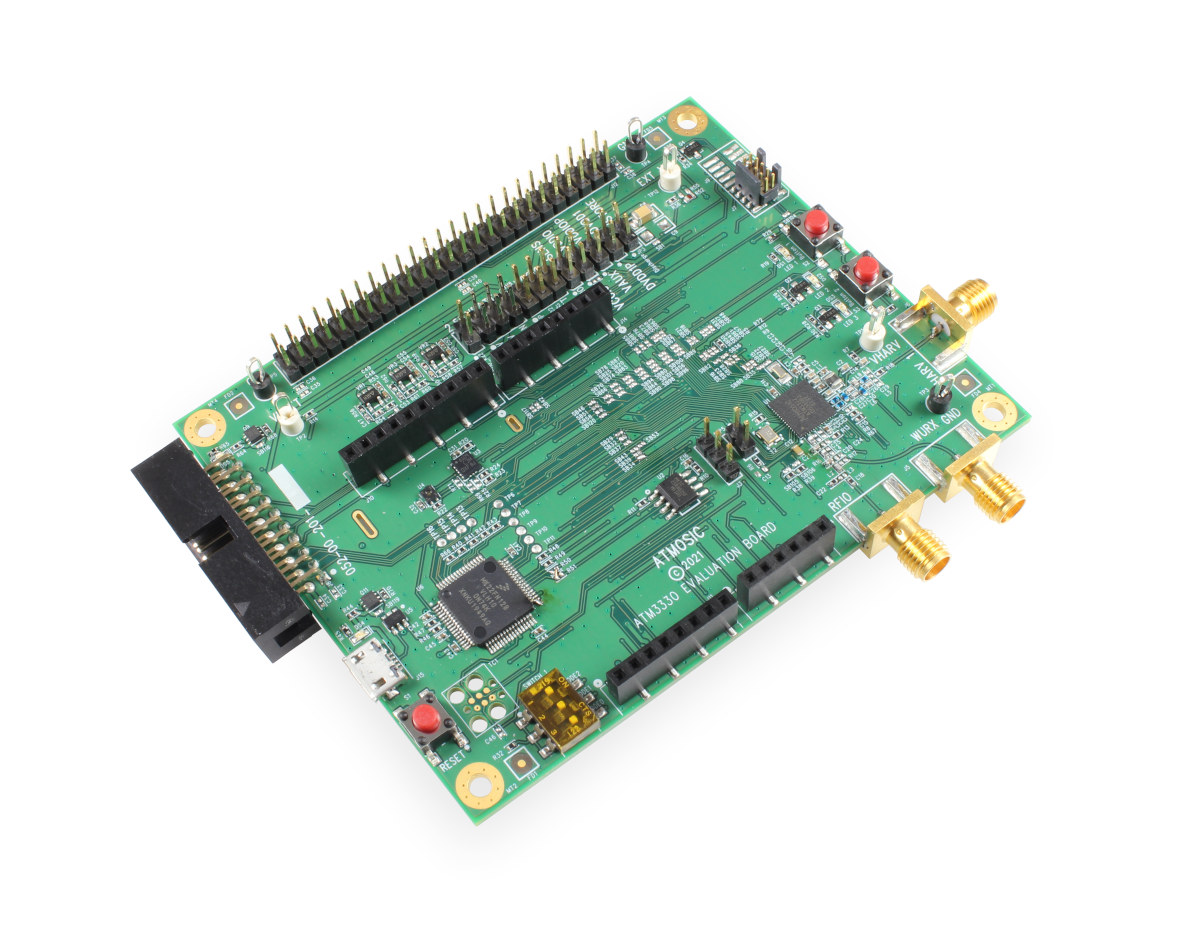Before you ask… No, it’s not another one of those CNXSoft’s typos, I did not mean to write cm (centimeters), and HDSC HC32L110 is indeed an Arm Cortex-M0+ microcontroller available in an almost microscopic 1.59 x 1.436 mm CSP16 package, which could make it the world’s smallest Arm MCU. I discovered the microcontroller when LilyGO shared a small board only showing the MCU’s dimensions and CSP16 type. Silicon Labs EFM8SB10F8G-CSP16 showed first in a web search, but that’s an 8-bit 8051 microcontroller with a 1.781 x 1.659 mm CSP16 package, and it’s unlikely they’d use a “Western” microcontroller. But I soon found the microcontroller on Huada Semiconductor Co. Ltd (HDSC) website. HC32L110 specifications: MCU core – Arm Cortex-M0+ 32-bit core @ up to 32 MHz Memory – 2KB to 4KB RAM memory with parity check Storage – 16K to 32KB flash memory with erase and write protection Peripherals 16x GPIOs […]
India goes RISC-V with VEGA processors
One of the main advantages of RISC-V architecture is that it is open, so any organization with the right skills can develop its own cores, and India’s government has taken up this opportunity with the Microprocessor Development Programme (MDP) helping develop VEGA RISC-V cores locally. Thanks to funding by the Ministry of Electronics and Information Technology (MeitY), the Centre for Development of Advanced Computing (C-DAC) managed to design five RISC-V processors ranging from a single-core 32-bit RISC-V microcontroller-class processor to a Linux capable quad-core 64-bit out-of-order processor. Key features of the five VEGA cores developed by the C-DAC: VEGA ET1031 – 32-bit single-core 3-stage in-order RV32IM processor with AHB/AXI4.bus, optional MMU, optional Debug VEGA AS1061 – 64-bit single-core 6-stage in-order RV64IMAFDC processor with 8KB D-cache, 8KB I-cache, FPU, AHB/AXI4 bus VEGA AS1161 – 64-bit single-core 16-stage pipeline out-of-order RV64IMAFDC processor with 32KB D-cache, 32KB I-cache, FPU, AHB/AXI4/ACE bus VEGA AS2161 […]
Maker Nano RP2040 offers Arduino Nano, Grove and Qwiic modules compatibility
Cytron Maker Nano RP2040 is board similar to Raspberry Pi Pico but with Arduino Nano form factor, a proper reset button, two RGB LEDs, single color LEDs for some GPIOs, a buzzer, as well as two Qwicc/STEMMA QT connectors that can also be used to connect Seeed Studio Grove modules using provided conversion cables. While the board mostly aims to be an Arduino Nano/Maker Nano upgrade, there are some notable differences with the I/O voltage being limited to 3.3V without 5V tolerance, and there are only four ADC inputs (A0 – A3) instead of eight on the Arduino Nano. Maker Nano RP2040 specifications: MCU – Raspberry Pi RP2040 dual-core Arm Cortex-M0+ microcontroller @ 125 MHz with 264KB internal RAM Storage – 2MB flash Audio – Piezo buzzer with mute switch Expansion 2x 15-pin headers with 22x GPIOs, 14x of which with LEDs,2x I2C, 2x UART, 2x SPI, 14x PWM, 4x […]
Wappsto:bit GO – An ESP32 board with plenty of sensors, Micro:bit compatibility (Crowdfunding)
Wappsto:bit GO is an ESP32 board compatible with BBC Micro:bit accessories thanks to a compatible edge connector, but adding WiFi to Bluetooth LE, and offering some extras compared to Elecrow Mbits ESP32-based BBC Micro:bit clone. The new board is notably equipped with a wider range of sensors including a light sensor, a magnetometer, and sound sensor beside the temperature sensor and accelerometer present in the original board, and it also exposes GPIO through a more traditional 2.54-pitch header to facilitate the integration of a wider variety of add-on boards. Wappsto:bit GO specifications: Wireless modules ESP32-WROOM-32E module with ESP32 dual-core microcontroller, 4MB flash, 2.4 GHz WiFi and Bluetooth LE connectivity, built-in PCB antenna Raytac MDBT50Q-512K Bluetooth 5.2 module based on nRF52833 with 512KB Flash MCU – NXP Kinetis KL2 Arm Cortex-M0+ microcontroller (MKL27Z256VFM4 ) with 256KB Flash (for USB port handling) Display – 25 LED matrix Sensors Temperature sensor, Light sensor […]
BTT SKR Pico – A Raspberry Pi RP2040 based 3D printer control board
BigTreeTech BTT SKR Pico V1.0 is a 3D printer controller board based on Raspberry Pi RP2040 MCU, compatible with Raspberry Pi Linux SBC’s, and specially designed for the compact Voron 0 3D printer, but also working with other models. The board comes with four TMC2209 motor drivers covered by a heatsink for cooling, as well as interfaces for temperature sensors, and a USB Type-C port to connect to the host computer, usually a Raspberry Pi board running Linux. BTT SKR Pico V1.0 3D printer board specifications: MCU – Raspberry Pi RP2040 dual-core Cortex M0+ microcontroller at up to 133 MHz with 264 kB of embedded SRAM Storage – TBD Motor drivers – Up to 4x TMC2209 drivers for X, Y, Z1, Z2, and E interfaces Temperature sensor interfaces – TH0, THB 2-way 100K NTC RTD sensors Host interface – USB Type-C port Misc – Built-in heatsink (Note: fan cooling is […]
StackyPi – A Raspberry Pi RP2040 board with Raspberry Pi Zero form factor (Crowdfunding)
SB Components’ StackyPi is a development board based on Raspberry Pi RP2040 MCU that happens to follow the Raspberry Pi Zero form factor. The board is equipped with 8MB SPI flash for the firmware, a MicroSD card socket, a micro SB port, two buttons, and a 40-pin GPIO header that makes it compatible with some Raspberry Pi uHAT and HAT expansion boards. StackyPi specifications: MCU – Raspberry Pi RP2040 dual-core Cortex-M0+ microcontroller @ up to 133 MHz with 264KB SRAM Storage – 8MB (64Mbit) SPI flash, MicroSD card socket USB – 1x Micro USB port Expansion – 40-pin GPIO header with GPIO, I2C, UART, SPI, etc… mostly compatible with Raspberry Pi header (3.3V I/Os) Misc – Reset and Boot buttons Power Supply- 5V via Micro USB port Dimensions – 65 x 30 mm (Raspberry Pi Zero form factor) The main advantage of such as board is that it can support […]
WCH CH32V307 RISC-V development board features 8 UART ports controlled over Ethernet
CH32V307V-EVT-R1 is a development board based on WCH CH32V307 RISC-V microcontroller with an Ethernet port, an USB Type-C port, and eight UART interfaces accessible through headers. As we noted in our article about CH583 Bluetooth 5.3 RISC-V microcontroller, WCH (Jiangsu Qin Heng) has started to share resources like datasheets and code samples through Github. They’ve done the same again for CH32V307 with schematics (PDF only), a datasheet in English, and firmware either bare metal or based on RT-Thread OS to control the eight serial interfaces over Ethernet. Let’s check CH32V305 and CH32V307 MCU specifications first: MCU core – WCH designed RISC-V4F 32-bit RISC-V core up to 144MHz FPU – Single-cycle multiplication and hardware division, hardware float point unit (FPU) ; Memory – Up to 64KB SRAM Storage – Up to 256KB Flash Networking – Gigabit Ethernet MAC, 10 Mbps PHY USB – 1x USB 2.0 OTG full-speed interface, 1x USB […]
Atmosic ATM33 – A Bluetooth LE 5.3 Cortex-M33 MCU with energy harvesting capabilities
Atmosic ATM33 is a Bluetooth LE 5.3 compliant Cortex-M33 microcontroller with optional energy harvesting capabilities that can enable up to 5x longer battery life and even battery-free solutions. The 64 MHz MCU also comes with 64 KB ROM, 128 KB RAM, 512 KB non-volatile memory, hardware security features, and SensorHub hardware block that allows data to be managed while the majority of the SoC, including the MCU core, is in a hibernated state. Atmosic ATM33 specifications: MCU core – Arm Cortex M33F core @ 64 MHz Memory/Storage 64 KB ROM, 128 KB RAM, 512 KB NVM Retention RAM configuration: 16 KB to 128KB in 16 KB step sizes Wireless Connectivity Bluetooth Low-Energy 5.3 compliant 2 Mbps, 1 Mbps 500 kbps, and 125 kbps PHY rates Supports Bluetooth Angle-of-Arrival (AoA) and Angle-of-Departure (AoD) direction finding Tx: 0 to 10dB 0.7mA receiver 16 MHz / Optional 32.768 kHz Crystal Oscillator Atmosic SensorHub […]


